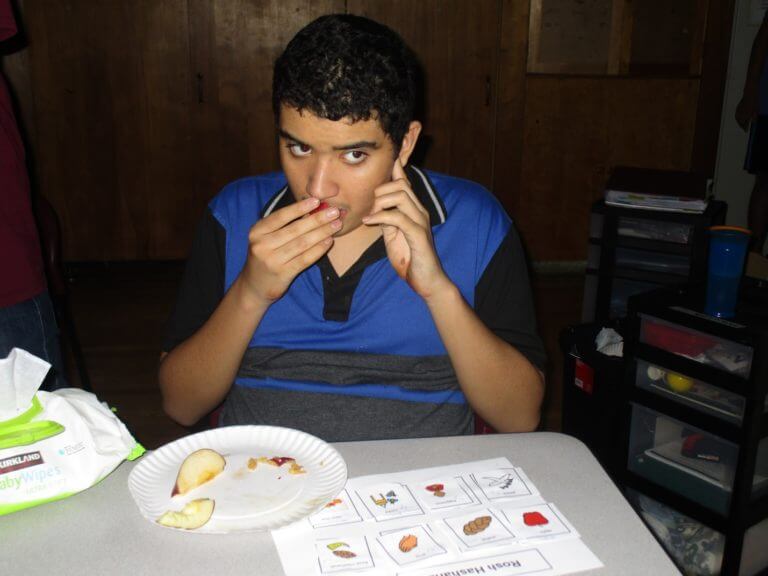April is National Autism Awareness Month, and on April 2nd, the global community celebrated the twelfth annual World Autism Awareness Day. Per Autism Speaks, international monuments, buildings, and homes will be lit with the iconic light blue hue in recognition of those living with autism.
But while the world celebrates and shines a light on this important day, many are still in the dark about how autism affects families, learning, and socialization. To help illuminate this oft-confused condition, The Phoenix Center has assembled a guide of frequently asked questions to empower parents and newcomers with vital information about autism.
What are the early signs of autism?
It’s important to remember that there is not one type of autism, but many. Each person’s case is determined by a number of genetic and environmental factors, granting each individual their own set of strengths and challenges. Frequent signs of autism often manifest around ages two or three including few big smiles or immediate signs of engaging, warm expressions; using very few words in communication; avoidance of eye contact; difficulty understanding other people’s feelings; consistent, repetitive behaviors or physical habits; and unusual or intense reactions to certain textures, colors, lights, or sounds.
Does autism differ from autism spectrum disorder (ASD)?
Not really — as mentioned, there is not one type of autism but many. This means the conditions associated with autism are wide-reaching; there is not a “catch-all” definition. Thus, autism encompasses a range of behaviors, hence the elongated title of autism spectrum disorder, which, according to the Centers of Disease Control and Prevention, is a broad term for “a developmental disability caused by differences in the brain.”
Is there a medical test that can be done to diagnose autism?
There is no blood test to classify autism; instead, a medical diagnosis is based on repeated behaviors and social interactions/communications ascertained by a specialist.
Will my child have a normal education?
The first thing to consider is nixing words like normal — it implies that some children are superior to others and creates unhealthy stereotypes. All children deserve access to supportive, nurturing educational environments, and students with autism are no different. As a private New Jersey school with a robust and experienced staff, The Phoenix Center is a unique and distinguished school that has long served not just student’s education, but also their parents, families, and long-term goals. Speak with one of your district case managers, explore our website, or give us a call for more information about our programming.
How prevalent is autism?
Autism and ASD are more common than one may think: according to the CDC, “autism affects one in 59 children in the United States today.” Because of this relatively high statistic, many believe that autism has been on the rise, but the likelier truth is that scientific research has improved allowing more people to be correctly diagnosed with autism. This is an important statistic to consider as stigmas around autism often spread when people fail to consider how prominent autism is — as rather common condition, it’s important to discuss its meaning and normalize its presence instead of ostracizing those with it.
What other conditions associated with autism should I be aware of?
Children with autism are eight times more likely to have some kind of gastrointestinal disorder, and as many as one-third of children with autism have epilepsy. It’s important to establish a long-lasting relationship with a specialized doctor who understands your child and can be of assistance through their upbringing. Like with your child’s clothing, sleep habits, and foods, find a medical professional your child is comfortable with to establish trust and confidence. Autism Parenting Magazine has put together an updated guide on Autism Stimming that can also be a helpful resource.

